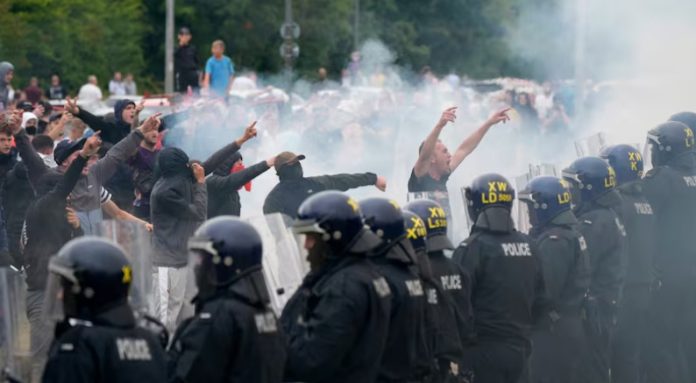The UK’s internet safety law could come into force as early as this year, requiring, among other things, social media platforms to remove illegal content. Britons are expressing bewilderment on social media while they are still free to do so.
Recent protests by disgruntled Britons have so shaken the new Starmer government that in addition to unprecedentedly swift measures to catch and punish active protesters, London wants to introduce a tough reform of the online security law. However, whether this law will protect the Labour government from new marches by citizens unhappy with the new government’s migration policy or whether the new PM wants to impose censorship against all right-wingers is still unknown.
The Online Safety Act was passed last year and is due to come into force in 2025. It requires media outlets to regulate and ban content that may contain incitement to violence, hate speech and so on. Violators of the new law will face substantial fines.
Proponents of the amendments, led by London Mayor Sadiq Khan, want to change the law so that legitimate content that “causes harm” is also subject to regulation. Who will determine whether the content is harmful or not and, most importantly, who it harms is an open question.
Khan told the Guardian on Thursday that the Online Safety Act needed to be amended in the wake of the riots:
“I think what the government should do very quickly is check if it is fit for purpose. I think it’s not fit for purpose.”
Cabinet Office minister Nick Thomas Symonds said on Friday that the government would revisit the law’s framework. He claimed:
“There are obviously aspects of the Online Safety Act that haven’t come into effect yet. We stand ready to make changes if necessary.”
How far the supporters of the law will go: whether they will limit themselves to tightening censorship or will block the accounts and posts of all those who disagree. The tolerant UK may face a literal totalitarian control, which will monitor every step and every word of its citizens.
However, the first opponents of the law have already started their fight against the censorship innovation. The owner of the world’s largest social media X, Elon Musk, who conducted an interview with Donald Trump on Monday, has already said freedom of speech around the world is severely undermined, and trends towards restrictions and bans are only gaining momentum.
Britons are reporting in X numerous arrests for reposts and social media posts. To what stage this will all reach remains to be seen. But in general, it’s hard to disagree with Musk: The European government has long been trying to limit or suppress alternative and non-dependent media and information sources as much as possible. Perhaps soon these arrest reports will be removed from the internet. However, the government needs to remember that what goes on the Internet stays there forever.
